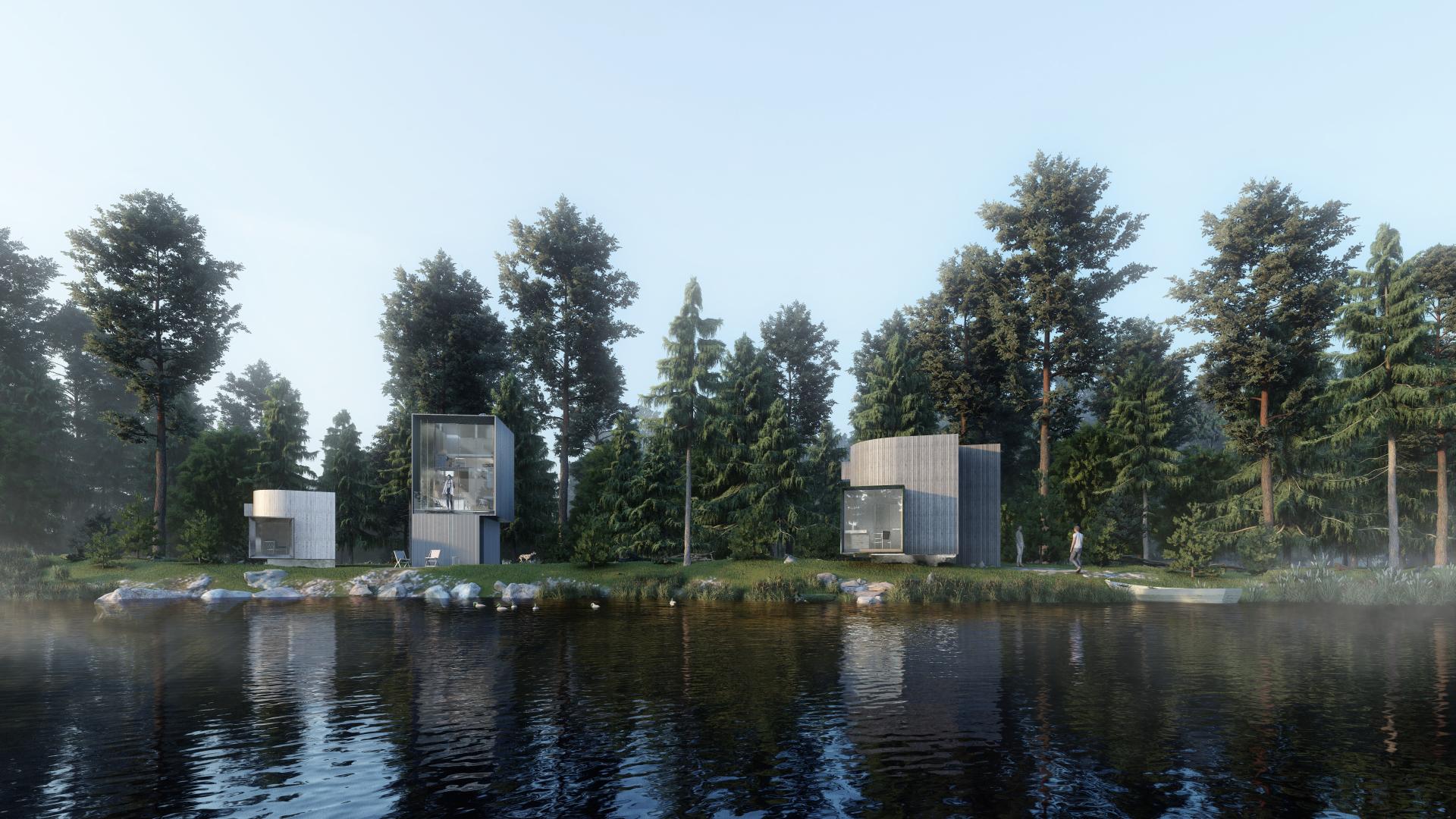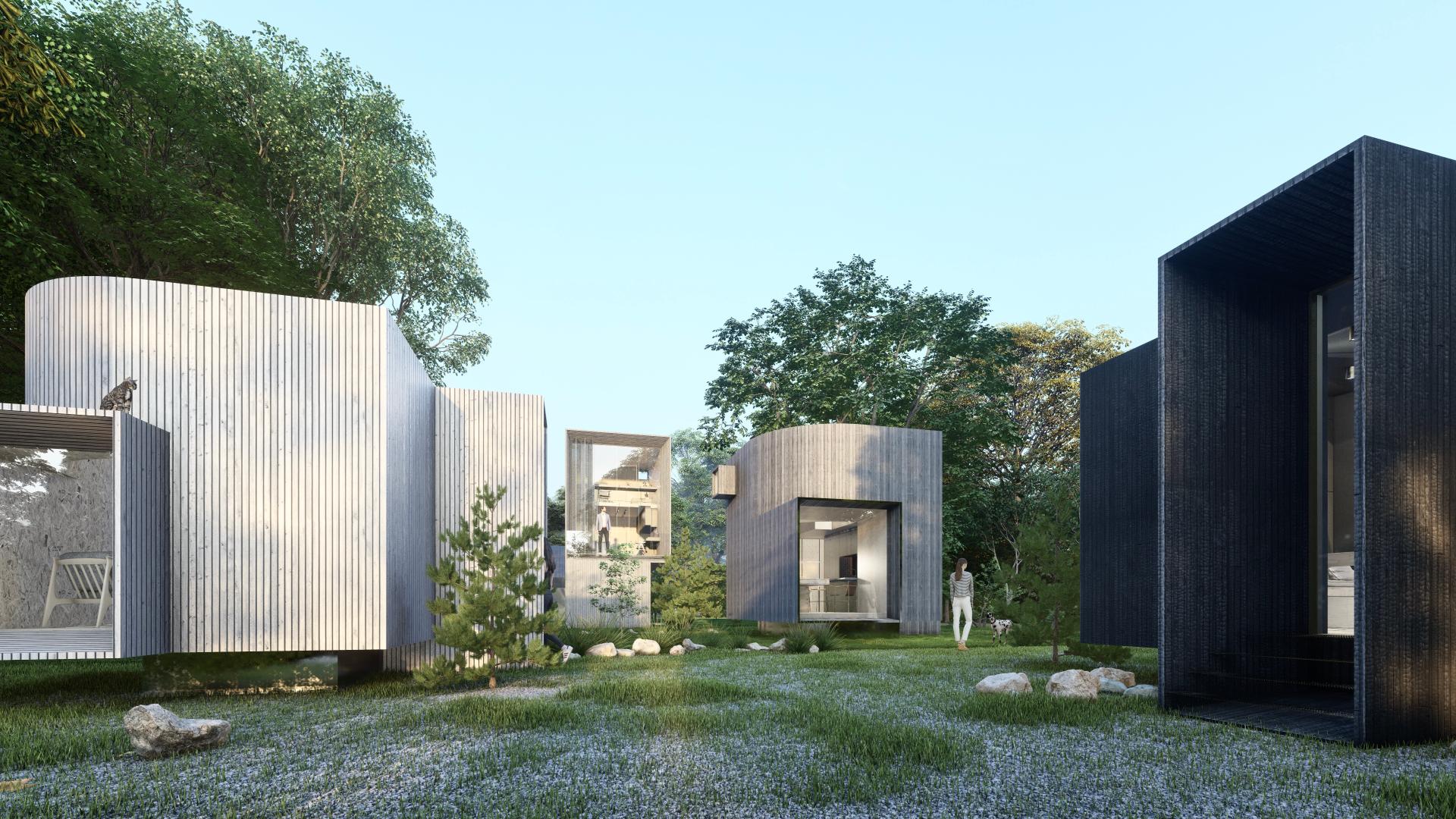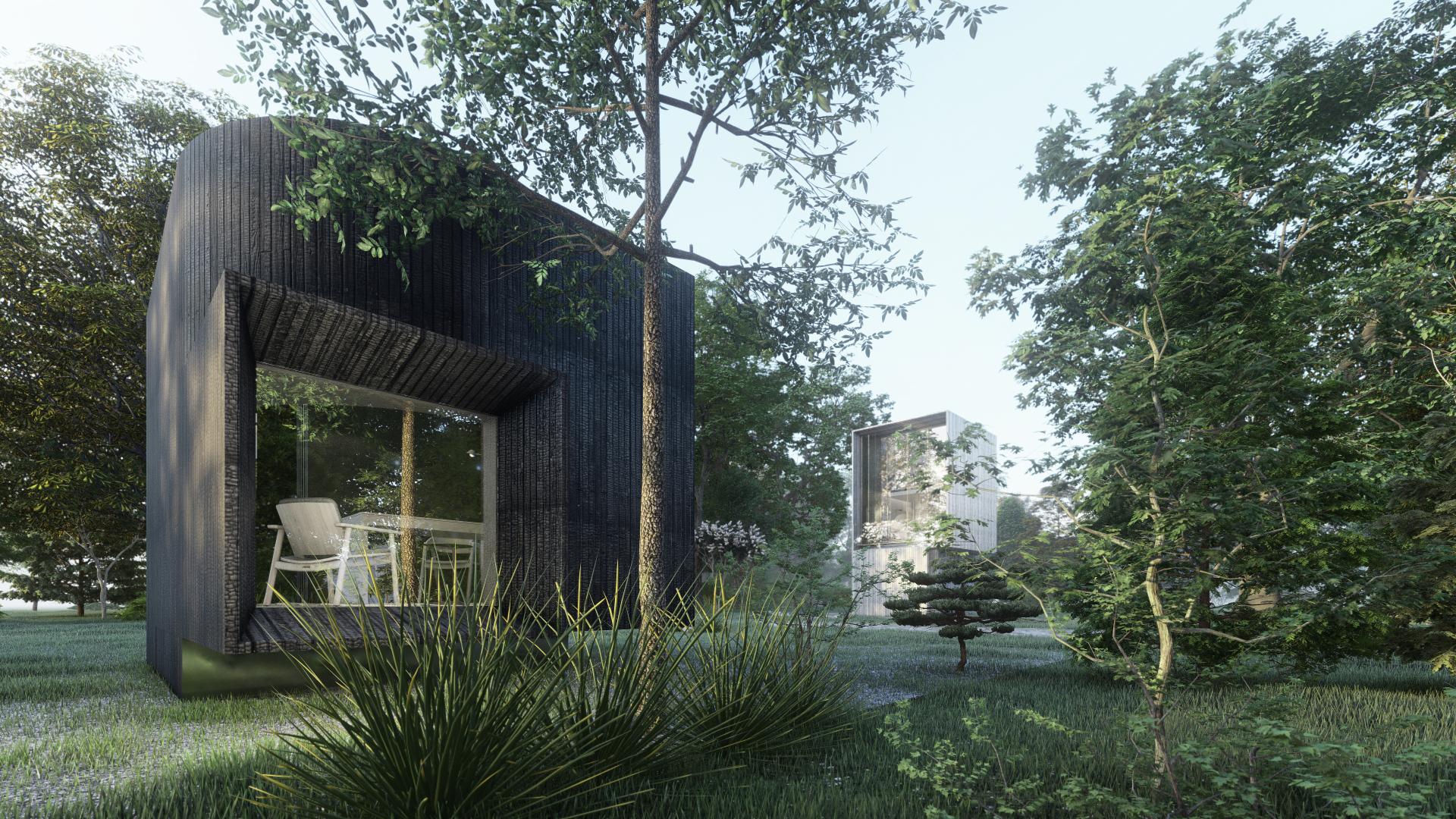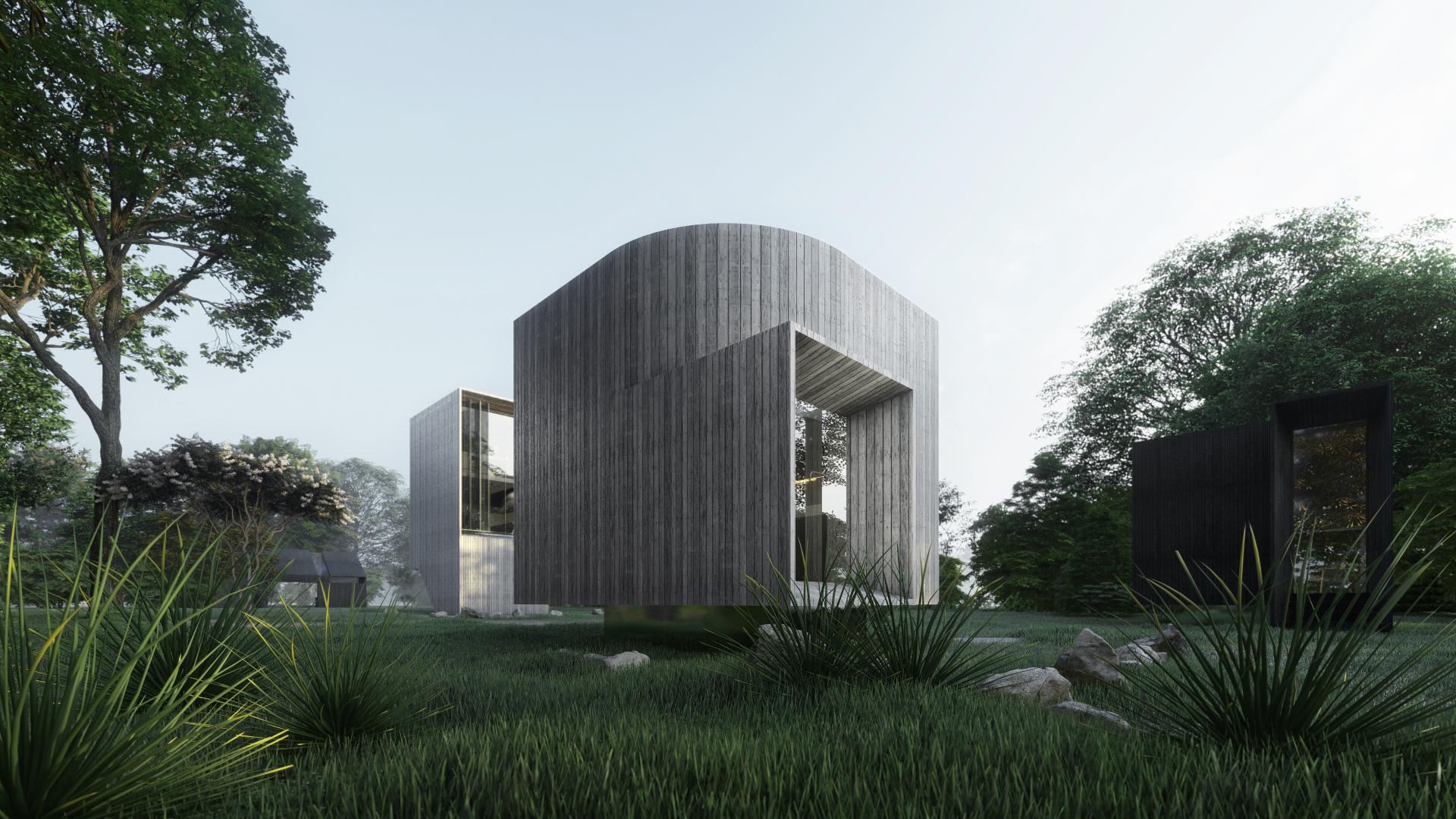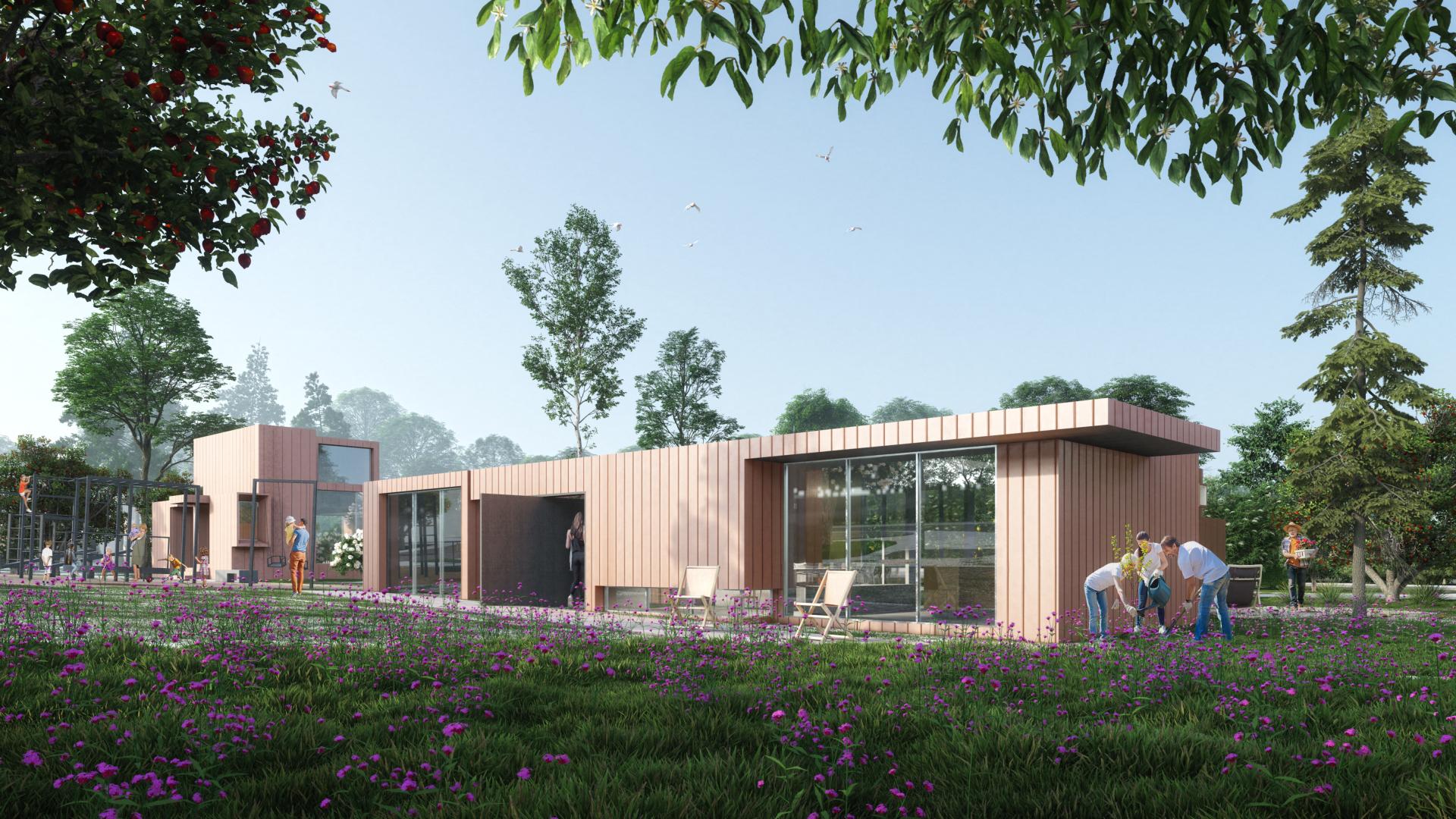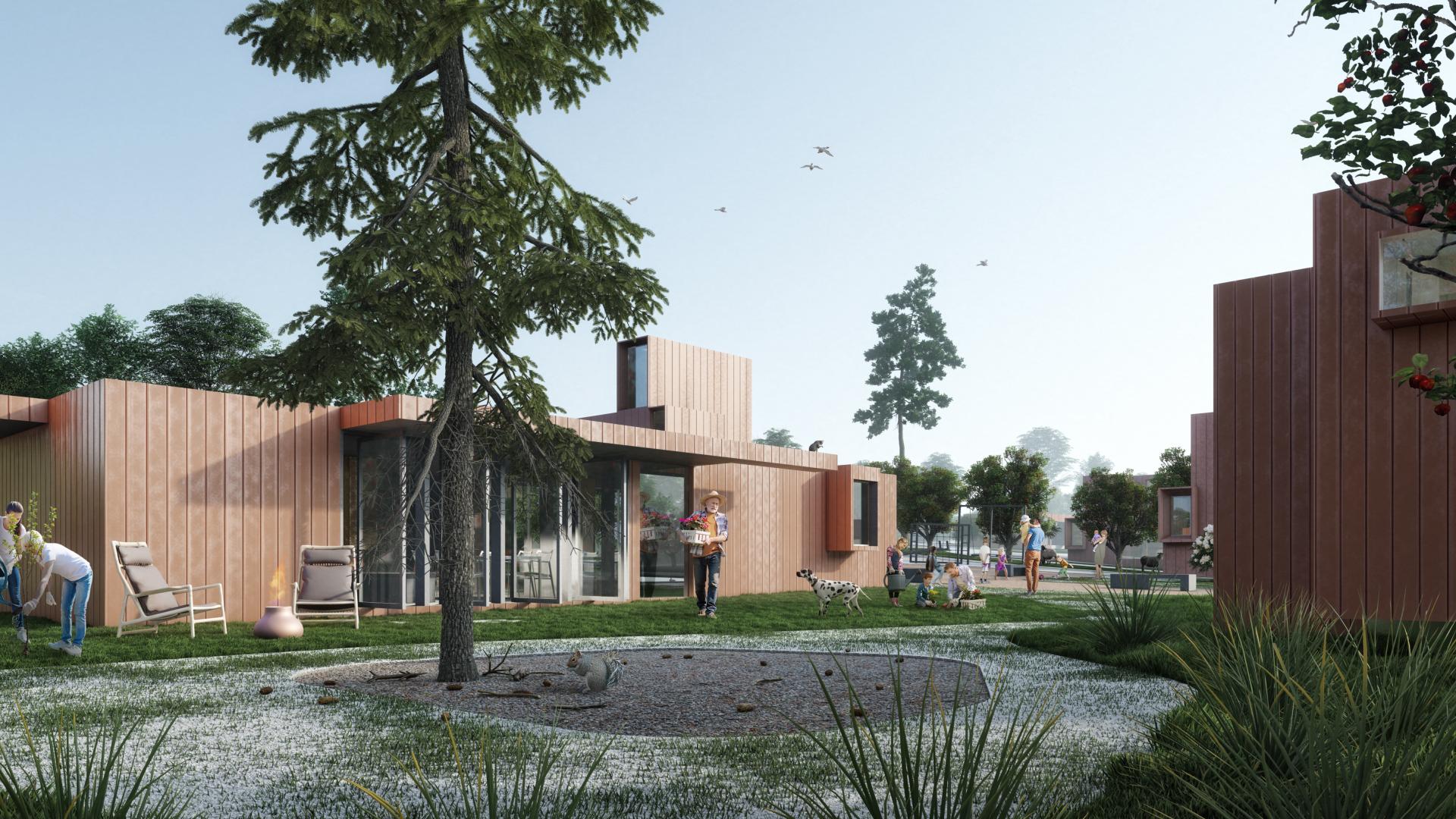Dominus Scalable Living
Basic information
Project Title
Full project title
Category
Project Description
The Dominus pilot units hybridise a direct response to housing crises that are amplified in a post-pandemic world, with new needs for working and living that haven’t been addressed (yet). Through a phased co-creation process and Open Case Repository, Dominus allows you to participate in different scales of autonomous living without the strings attached, simultaneously facilitating a viable and desirable transition to a low-carbon economy — at a scale you choose. Right on your Dominus doorstep.
Geographical Scope
Project Region
Urban or rural issues
Physical or other transformations
EU Programme or fund
Which funds
Description of the project
Summary
The proposed Dominus housing system aims to connect co-creation processes with renewable design for sustainable living environments. Focused through the pilot delivery of an off-grid housing unit for the co-creation of a retreat space, it intends to restore wellbeing, eliminate digital noise, and restore a connection to urban-rural landscapes. Through this, the pilot aims to engage new modes of hands-on learning, evolve new high-performance energy measures through up-skilling of participants, and demonstrate feasibility for this scalable social/affordable housing model for large-scale accessibility.
Actively connecting ‘expert’ makers with a diversity of community participants (e.g. students, local communities/ partners), the Dominus pilot construction can enable a ‘Green FabLab’; presenting itself as a test-site for a local community and a demountable exploration into new environmentally-led ways of living that has possibilities across Ireland and beyond. As an integrated holistic solution to pre-existing barriers to adoption of sustainable living, it offers an accessible and repeatable model for educational and practical collaborations between housing associations, local communities/ partners, co-making spaces, architecture studios and schools.
Each construction iteration includes three primary cycles of engagement: (1) Initial R&D and procurement, (2) hands-on climate education and ‘learning by doing’, and (3) Open Access Repository for shared procurement repeatability. In antidote to cultural and knowledge mobilisation barriers to renewable energy practice adoption, learning outcomes will be consolidated in the form of an online toolkit and disseminated via communities of learners in a hybrid format (including community workshops), progressing the project from a one-dimensional feedback process to a multidimensional one; mobilising actionable change at both individual and community levels towards a viable and desirable transition to a low-carbon economy.
Key objectives for sustainability
The phased co-creation process, beginning with one Dominus unit, walks a diverse stakeholder structure (next generation community participants; students, local community and housing association) through real-world end-to-end sustainable unit’s building, integration of renewable technologies, and users’ participation in them. In addition to demonstrating flexible design, the pilot shows via hands-on peer-to-peer learning how renewable technologies ‘fit-out’ and living spaces can be adapted and maintained before, during, and after a build.
Specifically, the co-created system is developed to be both scalable, energy independent and energy-producing (‘off-grid’), and to explore how users can integrated state-of-the-art power and heating system via solar panels and independent storage batteries. This pilot will include environmental interfaces needed for biodiversity and ecological enhancement such as garden boxes housing local plants and act as a funnel collector for a rainwater harvesting tank below — prototyped with next generation community participants (students, local community). New ecological water harvesting area and reed-based pond, as a new habitat for birds and pollinator species, also offers a resource for on-site community workshops through immersive and situated learning.
The micro-retreat dwellings will be produced using 3D digital ‘Green FabLab’ prototyping and involve co-creation process as facilitated by a maker space. Working together, local timber material will be optimised to develop structural CLT panels as scalable carbon stores. Adopting less carbon-intensive materials and a ‘circular approach’, units will be insulated using recycled ‘circular’ insulation materials and clad in residual-offcut material from the CLT fabrication process — and documented through parametric modelling processes as a ‘lean’ measure towards the packaged learning outcomes, for sharing with all partner groups/ learner communities.
Key objectives for aesthetics and quality
The affordable housing market, particularly in Ireland, is saturated with inflexible ‘box’ garden rooms and non-architectural tiny house constructions — notably lacking, diversity user customisability and architectural sensibilities (flexible design configurations, scalability, or autonomous living), as well as not maximising manufacturing tech. methodologies, despite global construction proof of models and trends. As a flexible system, the Dominus system can be easily adapted for new configurations. It’s a smartphone for living in — meaning both users and housing associations can customise their own high performance house to participate in new ways of living freely — on-grid or off-grid. And as a sustainable construction system designed through manufacturing principles, it allows for mass production and rapid scalability — at a scale they can choose.
The innovation rests at the intersection of connecting procurement practicality with design sensibilities, demonstrating a sustainable construction system designed through manufacturing principles for mass production and rapid scalability. In particular, the aforementioned ecological elements ‘mirror’ the design identity and its sensibilities (optimising space and layout, ergonomics, and sustainable materials and finish, proportions and interfaces), whereby multiple units can be attained to build autonomous village clusters (orchards) at once, or incrementally across time. User-customisable and incremental, the Dominus is a smartphone for living in.
Therefore, the interdisciplinary co-creation directly engages populations typically excluded from the climate conversation, both private individuals (users) and scalable housing communities. This inclusion aims to empower them to participate in scalable, replicable and ‘desirable’ forms of sustainable living — in direct confrontation to pre-existing cultural barriers to adoption (Note: Please see original high-resolution images uploaded for example Dominus unit designs).
Key objectives for inclusion
The pilot construction, beginning with one unit, will ensure to include a housing association partner in its process who will have an already established relationship with both citizens and community members who form part of marginalised and economically-restricted demographics, such as our social housing and the new Cost Rental scheme aimed at persons who are not on the Council housing list but cannot afford to purchase or rent on the open market. As part of team-building designed into the project from the outset, municipalities (e.g. Cork County Council) will be consulted to identify inclusive target groups (e.g. elderly persons, single parents, homeless persons, asylum seekers, etc.) for housing solution pathways/insights as part of the pilot proposal.
Further to this, the principle organisational structure, the ecological and environmental measures used in it, and the co-design processes will be shared via workshops and webinars via a community of learners (professionals/ students/ community groups/ housing bodies in Local Authorities) via the Open access and Open Case Repository — a digital and bottom-up knowledge resource to serve as an open, educational and linked repository for multi-level partnership initiatives/ impact, supporting the New European Bauhaus’ recognised “emergence of lead markets for new ways of living in buildings that are in harmony with the natural environment and the climate.”
Such inclusivity is ensured by designing these pathways to participation in from the beginning; and therefore would constitute part of the whole team throughout any of the phased project developments and deliveries. As mentioned, this inclusion aims to empower a wider range of populations typically excluded from the climate conversation to participate in scalable, replicable and ‘desirable' forms of sustainable living — towards increased knowledge mobilisation, systems thinking for cost-effective housing manufacture, its accessibility and climate action.
Physical or other transformations
Innovative character
The Dominus proposal integrates three modes of engagement (iterative feedback loops), collectively demonstrating end-to-end hands-on knowledge mobilisation of sustainable living:
(1) The initial R&D is via an Art Thinking Workshop/ ‘hackathon’ for Open Innovation; connecting of all active stakeholder groups for brainstorms, conception, and evaluation for a community-designed toolkit. By beginning as an ‘open’ project for participation with a planned local housing association who has already established relationships with a diversity of citizens/community members, it ensures their engagement, partnership and public participation alongside community partners.
(2) When procurement pathways/upcycled materials are established, so is the scope for the co-creation framework. This includes the hands-on peer-to-peer learning with a Co-Maker Space for the co-creation of a pilot unit, whereby the community (of learners) participants can explore how to design-matched environmental interfaces for biodiversity, as well as engaging situated/ on-site learnings for ecological design principles (e.g. permaculture, linking units to woodland cultivation for carbon sequestration), and optimising design elements for both active and passive energy solutions — also accommodating new remote working/living solutions needed to reduce travel related emissions.
(3) Both phase’s will co-generate an Open access and Open Case Repository — a digital and bottom-up knowledge resource to serve as an open, educational and linked repository for multi-level partnership initiatives/ impact. This will enable future scalabilities of the design (principles), participatory empowerment through hands-on learning of integrated renewable tech., connecting people to their energy usage to measure circularity and whole life carbon assessment, and provide circular feedback loops for large-scale adoption of socially focused and sustainable living environments to inform both policy and praxis.

